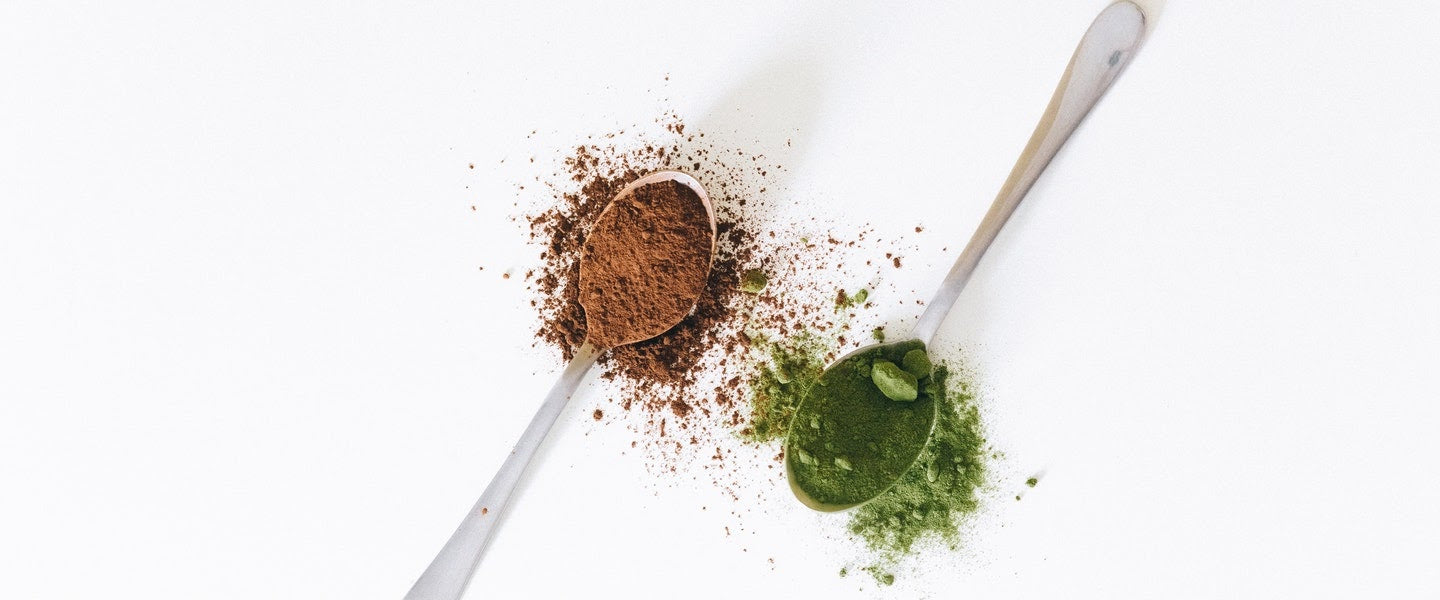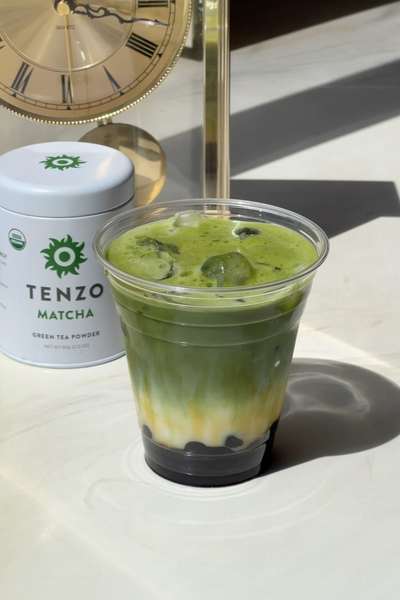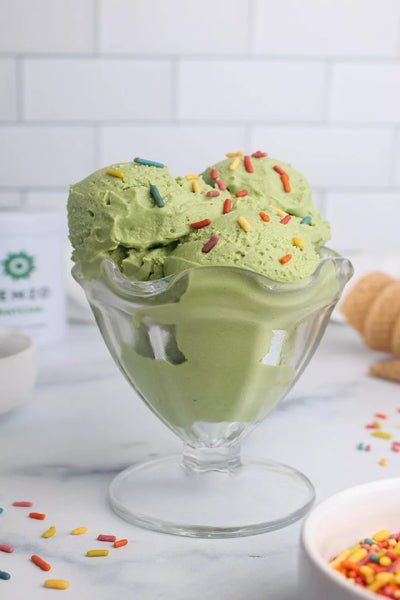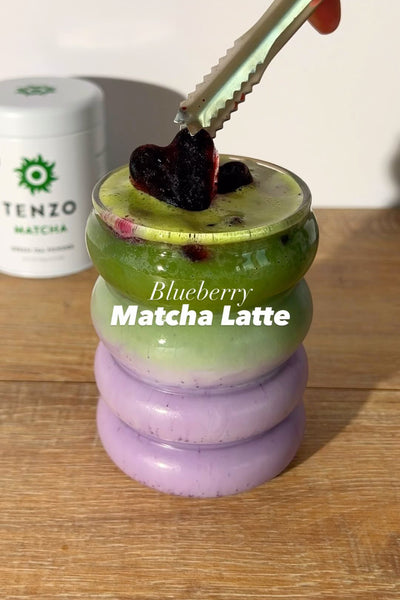Sencha vs. Matcha: The Differences Explained

There are many great reasons to begin incorporating tea into your diet, both physically and emotionally. Drinking tea, whether you’re replacing other caffeinated beverages or you’re sticking to herbal, can be an excellent way to avoid mid-day crashes, relieve tension and stress, and support your overall health and wellness. It can also help you to stay hydrated, and even feel more relaxed, so it’s easier to get the rest you deserve every night.
When it comes to finding that perfect tea to fit your daily needs and personal goals, you have many options, including black tea, herbal tea, green tea, and chai. Matcha tea is another great example of teas with healing and boosting qualities that taste delicious.
Here at Tenzo Tea, we’re dedicated to helping you find the ingredients and flavors that give you feelings of gentle energy and make achieving your goals feel accessible and exciting. We provide the information you need on different teas, like what sets sencha tea apart from matcha tea, and we share our favorite recipes and uses for fresh, healthy ingredients.
Matcha and sencha teas are just two of the tea choices at your disposal. Here’s what you’ll want to know about each when it comes to picking your next perfect tea combination for school, work, or home.
What is Sencha Tea?
Sencha tea is the most popular tea in Japan today, and it’s not challenging to see why. It’s prepared the way most teas traditionally are, by submerging whole tea leaves in hot water until the flavors and tea properties are steeped and available to drink.
Around eighty percent of tea drinkers in Japan turn to sencha tea, and the process for harvesting and preparing sencha tea is involved and carefully followed. The tea leaves require complete sunlight exposure and are harvested young, then steamed and crumpled immediately and left to dry. Only the buds and leaves are used to make the tea.
Sencha tea can have a wide range of flavor profiles, especially depending on how it is produced and whether loose-leaf or bagged tea is used. Most commonly, sencha delivers fresh flavors of seaweed or leafy green vegetables. It is aromatic and refreshing and because it is classified as a type of green tea, it can have a wide range of caffeine content, so you can produce your sencha tea to fit your personal needs.
Tea can have many health benefits and offer wellness support, and sencha tea is no different. You’ll find that even with low caffeine levels, sencha tea can provide a sense of energy and excitement for the day ahead, support healthy metabolic function, and aid in your overall wellness journey.
What is Matcha Tea?
While sencha tea is harvested and prepared in similar ways to many other types of tea, matcha tea stands out on its own as a totally unique ingredient. When you find the right matcha tea for your kitchen, you’ll enjoy both refreshing and delicious flavors and myriad health and wellness boosts and support that can keep you feeling energized throughout the day.
Where sencha tea, like most teas, is steeped in hot water to flavor it, matcha tea is actually ground into a fine powder. Rather than steeping leaves in water, matcha powder is mixed directly into the water, making it a unique and connected drinking experience that few other ingredients provide.
In addition to delivering delicious flavor, like a sweet, grassy taste, matcha is also known for its many health benefits. It can help to reduce the appearance of blemishes on the skin, support immune health and function, provide essential vitamins and minerals, and improve feelings of energy and alertness.
How Are They Alike?
There are a few key factors that make matcha tea and sencha tea similar. To start, they’re both harvested from the same plant, the camellia sinensis tea plant, which is known for being full of great nutrients, hence why both types of tea are so beneficial to your physical and emotional wellness.
They also both have long and storied histories and have contributed cultural and historical value for generations. And, of course, both sencha and matcha tea are known for providing gentle and long-lasting energy that makes it easier to focus and be creative and engaged throughout the day.
How Are They Different?
When it comes to deciding on the right tea for your needs, it’s a good idea to know what makes sencha and matcha tea different, as well as similar. Here are some of the key differences between the two teas.
From Harvest On
While both teas are harvested from the camellia sinensis tea plant, the way they are grown is very different. Sencha tea plants are kept in direct sunshine, whereas matcha tea plants are grown in the shade. This contributes to their flavors and scents and can impact the nutritional value of each, as well.
In Preparation
Most teas are prepared by steeping tea leaves in hot water and sencha is no exception. Matcha, on the other hand, is ground into a fine powder and then mixed directly into the water. This means you can enjoy a closer connection with your tea and you’ll get many of the energy-boosting health benefits, as well. This unique method of preparation also contributes to the flavors and uses of matcha tea, which are delicious and versatile.
Texture and Taste
Sencha tea has a traditional texture, with a fresh, warming heat that can give you a boost on even the coldest morning. By contrast, matcha tea is mixed, rather than steeped, which means it provides a creamier texture that makes it great for adding into many recipes and enjoying as a sweet, healthy treat all on its own.
In addition to unique textures, the tastes all vary, as well. Sencha has an earthier and greener flavoring that can sometimes have a slightly bitter aftertaste. Matcha is also fresh and vegetable-based in its flavoring but is known for being much sweeter.
In Use
While both matcha and sencha teas have middle to high levels of caffeine, depending on how they are prepared and what kind of leaves are used, matcha tea is specifically known for its energy-boosting qualities.
Because of the method of preparation, and the way that the ground powder is blended into the water, it can deliver on higher levels of energy, which can help to make it easier to focus and be productive throughout the course of the day. And it does it all without the mid-afternoon crashes that are often associated with caffeine.
Sencha, on the other hand, provides a more classic boost of caffeine, but is also helpful for refreshing and hydrating, which are healthy and long-term ways to stay engaged and energized.
You can mix drinks and sweets with both sencha and matcha tea. Sencha tea cakes will be lighter and more subtle in flavor since the tea can be a delicate ingredient to bake with. You’ll find matcha goes well in hearty and richer dishes, like pancakes, cookies, and dark chocolate mint cups.
Conclusion
When it comes to drinking tea for health, energy, and personal enjoyment, both sencha and matcha tea will serve you right every time.
They share many wonderful similarities, like the plant they are harvested from and many of the health and wellness boosting benefits that can protect and support your body in the short-term and over time. But there are differences between the two types, as well, and understanding the nuances between each can make it easier to find the perfect flavors and benefits to fit your daily life and all your tea drinking needs.
They are grown, harvested, and prepared differently, which can impact both which nutrients are available when you enjoy your tea and what flavors and textures come through. You can also use different flavoring, like honey, florals, and fruits, depending on which type of tea you enjoy most, and each can be baked or mixed with ease, so you can try them in many unique ways.
Sencha is refreshing and bold and matcha provides plenty of healthy and gentle energy for those long days, without any associated caffeine crashes and few side effects.
When you’re ready to begin learning more about matcha tea and all the unique ways to incorporate it into your diet, Tenzo Tea is here to help. We believe that fresh, wholesome ingredients can contribute to creativity, energy, and inspiration, which is why we share only the best matcha teas and our favorite recipes to go with them. Explore our growing library of information and ideas and begin testing out new matcha tea flavors for yourself today.
Sources:
https://spoonuniversity.com/lifestyle/sencha-vs-matcha
https://www.delishknowledge.com/sencha-more-than-just-a-drink-in-japan/










